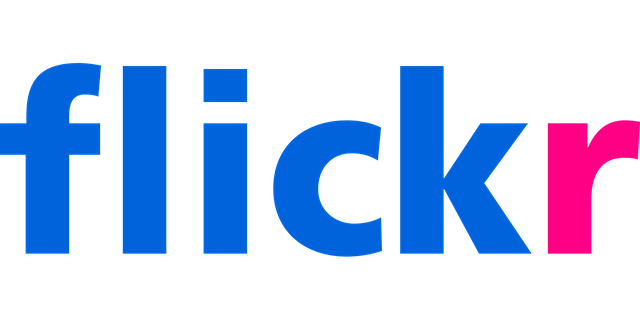
Business Overview
What It Is Accounting businesses provide critical financial services that help individuals and organizations understand, manage, and optimize their money. Services often include bookkeeping, tax preparation, payroll, budgeting, and financial reporting. Some professionals also offer strategic advisory, helping clients make sound decisions based on financial data.
Why It Matters Behind every thriving business is a solid financial backbone. Accountants don’t just crunch numbers—they translate them into clarity and confidence. In today’s complex and fast-changing economy, financial literacy is not optional. Offering reliable, trustworthy accounting means empowering others to stay compliant, make smart moves, and grow sustainably.
Accessibility & Flexibility This business can scale beautifully. It can start as a solo venture from a home office or serve as the foundation of a full-service firm. With cloud-based tools and remote access, accountants can serve clients across geographies and industries.
Accounting is a very important part of a business. As an entrepreneur, you either do it yourself or get someone else to do it for you. I have included this article for freelancers to have a very broad outline of the accounting profession. With this you can at least appreciate the discipline as well as its role in your business. As your business grows, the distinctions between the different types of accounting will become increasingly important.
When you are first starting, the only form of accounting you’ll ever meet would probably be record-keeping and bookkeeping. This is the part where you record the sales you’ve received and the expenses you have made using receipts, invoices, cheques and other transactions source documents.
Firstly, what is accounting?
For most people, accounting does not concern them because they think of it as a laborious activity performed by people who are ‘good with numbers’. Accounting is often confused with the narrow concepts of record-keeping and bookkeeping.
Accounting of course is much broader than that. “Accounting is the system that measures business activities, processes that information into reports and communicates these findings to decision-makers”. The accounting system produces financial statements that report on an individual’s or an organization’s business in monetary amounts.
Who Uses Accounting Information?
1. Individuals, 2. Businesses, 3. Investors and Creditors, 4. Government Agencies, 5. Taxing Authorities, 6. Non-Profit Organizations and 7. Other Users including employees, consumer groups, labour unions and the general public.
The Types of Accountants and The Specialized Services Performed By Them:
1. Private accountants – These work for single organizations. They may perform cost accounting, budgeting, information systems design, internal auditing, financial accounting and management accounting;
2. Public accountants – These serve the general public. They may perform specialized services such as auditing, tax accounting and management consulting.
For small business owners, the areas that would occupy most of your time is financial and management accounting. Financial accounting provides information to people outside the business including creditors and the government for tax purposes. Management accounting generates information for you, the person who manages the operations of the business. This will produce how much you are spending on manufacturing your products or providing your services in a way that you can see where you are lacking and where your are doing well on.
Starting an accounting business can be a challenging but rewarding experience. Here are some general steps to help you get started:
- Conduct market research: Identify your target market, competition, and the services you want to offer.
- Create a business plan: Define your business goals, revenue model, and marketing strategies.
- Register your business: Choose a legal structure and register your business with the appropriate authorities.
- Set up your business: Establish your business location, acquire necessary equipment and software, and hire employees if needed.
- Develop a client base: Market your business, network with potential clients, and provide high-quality services.
It’s important to note that starting an accounting business requires a lot of work and dedication. You may also need to obtain certain certifications and licenses depending on your location and the services you offer.
Here are some resources that can help you get started:
- Thomson Reuters provides a comprehensive checklist for starting a CPA firm.
- Universal Accounting School offers a step-by-step guide to launching your own accounting practice.
- Starters Diary provides an 8-step guide for starting an accounting business.
- Growthink offers a guide on how to start an accounting business.
- How to Entrepreneur provides a step-by-step guide on how to start an accounting business.
I hope this helps! Let me know if you have any other questions.
What You Will Be Doing
Accountants and auditors examine financial statements for accuracy and conformance with laws.
Accountants and auditors prepare and examine financial records, identify potential areas of opportunity and risk, and provide solutions for businesses and individuals. They ensure that financial records are accurate, that financial and data risks are evaluated, and that taxes are paid properly. They also assess financial operations and work to help ensure that organizations run efficiently.
Duties
Accountants and auditors typically do the following:
- Examine financial statements to ensure that they are accurate and comply with laws and regulations
- Compute taxes owed, prepare tax returns, and ensure that taxes are paid properly and on time
- Inspect account books and accounting systems for efficiency and use of accepted accounting procedures and identify potential risks for fraud
- Organize, analyze, and maintain financial records
- Assess financial operations, identify risks and challenges, and make best-practices recommendations to management
- Suggest ways to reduce costs, enhance revenues, and improve profits
Accountants and auditors may use technology, such as artificial intelligence (AI) and robotics process automation, to increase their productivity. Automating some routine tasks makes these workers more efficient by allowing them to focus on analysis and other high-level responsibilities.
In addition to examining and preparing financial documents, accountants and auditors must explain their findings. This includes preparing written reports and meeting face-to-face with organization managers and individual clients.
Many accountants and auditors specialize, depending on their employer. Some work for organizations that specialize in assurance services (improving the quality or context of information for decision makers) or risk management (determining the probability of a misstatement on financial documents). Other organizations specialize in specific industries, such as finance, insurance, or healthcare.
The following are examples of types of accountants and auditors:
Government accountants maintain and examine the records of government agencies and audit private businesses and individuals whose activities are subject to government regulations or taxation. Accountants employed by federal, state, and local governments ensure that revenues are received and spent according to laws and regulations. Their responsibilities include auditing, financial reporting, and management accounting.
Management accountants are also called cost, corporate, industrial, managerial, or private accountants. They combine accounting and financial information to guide business decision making. They also understand financial and nonfinancial data and how to integrate information. The information that management accountants prepare is intended for internal use by business managers, not for the public.
Management accountants often prepare budgets and evaluate performance. They also may help organizations plan the cost of doing business. Some work with financial managers on asset management, which involves planning and selecting financial investments such as stocks, bonds, and real estate.
Public accountants have a broad range of accounting, auditing, tax, and consulting tasks. Their clients include corporations, governments, individuals, and nonprofits.
Public accountants work with financial documents that clients are required by law to disclose, such as tax forms and financial statements that corporations must provide to current and potential investors. Some public accountants concentrate on tax matters, advising corporations about the tax advantages of certain business decisions or preparing individual income tax returns.
Other public accountants specialize in forensic accounting, investigating financial crimes such as securities fraud and embezzlement, bankruptcies and contract disputes, and other complex and potentially criminal financial transactions. Forensic accountants combine their knowledge of accounting and finance with law and investigative techniques to determine if an activity is illegal. Many forensic accountants work closely with law enforcement personnel and lawyers during investigations and often appear as expert witnesses during trials.
Still others work with individuals, advising them on important personal financial matters. These public accountants combine their expertise in data management, economics, financial planning, and tax law to develop strategies for their clients. Advisory services cover topics including cash flow, insurance, investment, retirement, and wealth transfer planning to help clients meet financial goals, such as retirement, paying for a child’s education, or buying a home.
Public accountants, many of whom are Certified Public Accountants (CPAs), generally have their own businesses or work for public accounting firms. Publicly traded companies are required to have CPAs sign documents they submit to the Securities and Exchange Commission (SEC), including annual and quarterly reports.
External auditors check for proper management of an organization’s funds, sources of revenue, and internal controls, such as financial data preparation or managing risks to cybersecurity or the supply chain. They are employed by an outside organization, rather than the one they are auditing. They review clients’ financial statements and inform authorities, investors, and regulators that the statements have been correctly prepared and reported with no material misstatements.
Information technology (IT) auditors review controls for their organization’s IT systems to ensure that both financial and nonfinancial data come from a reliable source.
Internal auditors have duties that are similar to external auditors, but these workers are employed by the organization they are auditing. They identify ways to improve the processes for finding and eliminating waste, fraud, and other financial risks to the organization. The practice of internal auditing is not regulated, but the Institute of Internal Auditors (IIA) provides generally accepted standards.
Qualifications/Skills Needed
Most accountants and auditors need at least a bachelor’s degree in accounting or a related field.
Accountants and auditors typically need at least a bachelor’s degree in accounting or a related field to enter the occupation. Completing certification in a specific field of accounting, such as becoming a licensed Certified Public Accountant (CPA), may improve job prospects.
Education
Accountants and auditors typically need a bachelor's degree in accounting or a related field, such as business, science technologies, or social science. Some employers prefer to hire applicants who have a master’s degree, either in accounting or in business administration with a concentration in accounting.
Some universities and colleges offer specialized programs for a bachelor’s or master’s degree, such as in accounting, forensic accounting, internal auditing, or tax accounting. In some cases, those with an associate’s degree, as well as bookkeepers, accounting, and auditing clerks who meet the education and experience requirements set by their employers, may get junior accounting positions and advance by showing their accounting skills on the job.
Students may gain practical experience through internships with public accounting or business firms.
Licenses, Certifications, and Registrations
Any accountant who files a report with the Securities and Exchange Commission (SEC) is required to be a licensed Certified Public Accountant (CPA). Other accountants choose to become a CPA to enhance their job prospects or to gain clients. Employers may pay the costs associated with the CPA exam.
CPAs are licensed by their state’s Board of Accountancy. Becoming a CPA requires passing a national exam and meeting other state requirements. All states require CPA candidates to complete 150 semester hours of college coursework to be licensed, which is 30 hours more than the usual 4-year bachelor’s degree. Many schools offer a 5-year combined bachelor’s and master’s degree to meet the 150-hour requirement, but a master’s degree is not required.
A few states allow a number of years of public accounting experience to substitute for a college degree.
All states use the four-part Uniform CPA Examination from the American Institute of Certified Public Accountants (AICPA). Candidates do not have to pass all four parts at once, but most states require that candidates pass all four parts within 18 months of passing their first part.
All states require CPAs to take continuing education courses, including ethics, to maintain their license.
Certification provides an advantage in the job market because it shows professional competence in a specialized field of accounting and auditing. Accountants and auditors seek certifications from a variety of professional societies. Some of the most common certifications are listed below:
The AICPA offers several designations. For accountants with a CPA, the AICPA offers the Accredited in Business Valuation (ABV), Certified Financial Forensics (CFF), Certified Information Technology Professional (CITP), and Personal Financial Specialist (PFS) certifications. All of these credentials require experience in the related area, continuing education, and passing an exam.
AICPA and the Chartered Institute of Management Accountants (CIMA) developed the Chartered Global Management Accountant (CGMA) designation as an internationally recognized professional credential. Candidates must complete a program, pass an exam, and meet a requirement for work experience.
The Association of Government Accountants (AGA) offers the Certified Government Financial Manager (CGFM) credential to accountants or auditors working with federal, state, or local government. To earn this certification, candidates must have a bachelor’s degree from an accredited college or university, pass examinations, and have professional-level experience in government financial management. To keep the certification, CGFMs must complete continuing professional education.
The Institute of Internal Auditors (IIA) offers the Certified Internal Auditor (CIA) credential to graduates from accredited colleges and universities who have work experience as internal auditors and have passed an exam. The IIA also offers the Certified in Control Self-Assessment (CCSA), Certified Government Auditing Professional (CGAP), Certified Financial Services Auditor (CFSA), and Certification in Risk Management Assurance (CRMA) to those who pass the exams and meet educational and experience requirements.
The Institute of Management Accountants (IMA) offers the Certified Management Accountant (CMA) to applicants who complete a bachelor’s degree. Applicants must have work experience in management accounting, pass an exam, agree to meet continuing education requirements, and comply with standards of professional conduct.
ISACA offers the Certified Information Systems Auditor (CISA) to candidates who pass an exam and have work experience auditing information systems. Information systems experience, financial or operational auditing experience, or related college credit hours may be substituted for some of the experience required in information systems auditing, control, or security.
Startup Cost/Unusual Expenses
xxx
Other/Ongoing Expenses
xxx
What You Can Charge/Earn
xxx
Other Services You Can Offer
Every business has other services that can be offered to its clientele. Here we will list some of those options.
Important Qualities
Analytical and critical-thinking skills. Accountants and auditors must be able to critically evaluate data, identify issues in documentation, and suggest solutions. For example, internal auditors might detect fraudulent use of funds, and public accountants may work to minimize tax liability.
Communication skills. Accountants and auditors must be able to listen to and discuss facts and concerns from clients, managers, and other stakeholders. They must also be able to discuss the results of their work both in meetings and in written reports.
Detail oriented. Accountants and auditors must pay attention to detail when compiling and examining documents.
Math skills. Accountants and auditors must be able to analyze, compare, and interpret facts and figures. They may use advanced math skills, such as calculus and statistical analysis, for these tasks.
Organizational skills. Strong organizational skills are important for accountants and auditors, who often work with a range of financial documents for a variety of clients.
How you Can Succeed
Now, Work Your Plan
Early in my career, I was told, “Most people have a business plan, but the problem is they don’t work their plan.” The same may be said of New Year resolutions. How many promises did you make to yourself and on how many of them will you follow through?
One major problem is sometimes too many goals are set. Another issue may be the one goal is so dramatic it would consume all of your time to achieve. In fact, it may be so huge, it becomes overwhelming. At this stage, not only will you not work on this idea, but the state of overwhelm will prevent you from achieving your other simpler goals.
For example, if you wanted to get known nationwide this year, you would have to undertake major public relations strides to accomplish this. It would entail speaking everywhere you could, demonstrating your expertise, contacting as much of the media as possible and the continuation of being seen and heard in every manner known to mankind.
At the same time, you still have all of the other avenues of your business to contend with as the CEO of your own company. How do you combat this dilemma?
In my mind, I equated a large year-long project with a one-a-day vitamin. My suggestion is to break down the public relations strategies into do-able tasks. First, outline absolutely everything you can think of that will need to be tried and completed for you to feel 100% successful. Then prioritize the steps in order of what will take the longest to complete.
Begin with the most difficult and time-consuming tasks first. The reasoning here is two-fold. First, you have the most excitement the beginning of the year, as in, “I’m really going to do it this time!” So it will be easier to tackle the difficult assignment now. Second, if you begin a long project at the end of the year, you may not complete it on time and you will feel you have let yourself down.
Now that you know which task to begin, complete at minimum, one step of it each day dependent upon how much time you can devote to the project. This is where I liken the process to the one-a-day vitamin.
One task a day devoted to your highest priority will give you renewed energy to keep on going! You will feel excitement coming your way and the adrenalin will be flowing. Your project will become easier and more joyful each day as you complete a task.
As you become accustomed to the daily routine of working on your big project, it will be easier to squeeze in a couple of the smaller tasks too. Within several months, you begin to feel as if you are making strides in getting known and the other areas of your business are growing too. In fact, as all areas of your business build together, new business will come your way with far less effort.
When you work strategically, the worry diminishes and the smiles return to your face. At the same time, be certain to help those who need your area of expertise or who want to follow in your footsteps. Your new demeanor will attract new clients as you are happy, confident and apparently successful. You will also build repeat business, referrals and testimonials – all essential ingredients for success.
Every few months you will be able to see and measure you progress. Mid-year, you should be feeling fairly popular. By the end of the year, you will have succeeded and be known nationwide!
Additional ideas to build business:
– The end of each week review each day’s accomplishment
– On Friday devise a plan for the daily tasks for the following week
– As the difficult tasks complete, incorporate the simpler ones
– Increase your dosage of vitamins or daily tasks as the routine simplifies
– Share your good news of accomplishments
– Vow to keep taking your business vitamins year after year
The end result of paying excellent attention to your plan is it will succeed, and Your Profits Will Soar!
Copied with permission from: http://plrplr.com/11796/plan-your-success/
How to Attract Clients/Customers
Three places to find new clients without a lot of work
1. Don’t ignore your own “Acres of diamonds” – ask your existing clients to refer some of their family, friends and associates to you. If they’re happy with your service they will be more than happy to do it and your job will be much easier since they are coming recommended by someone they trust.
2. Former employers and associates, both in your current field and in other related fields, can be a great resource for finding new business. Give them a call, talk about what you are doing and ask for referrals or better yet – have lunch and catch up with them and again, don’t be shy about asking for referrals!
3. Ask your current prospects who they know that may need your products or services. It may sound odd at first but give it a try and your opinion may quickly change. Especially if you’ve gone out of your way to help them.
Remember that the vast majority of people generally enjoy helping others. Everyone wants to feel good about themselves and one of the quickest, surest ways of doing that is to help others. When you ask the people in your circle of influence to help you by referring new clients, you’re helping yourself, you’re helping them by enabling them to help you, and you’re helping the potential clients by providing a quality product or service that they need.
For more information about obtaining and maintaining your client base, check out the resources in the "Where to Begin" section.
Obtaining Customers
How to get the new customers you need to provide the income your business requires is a matter of prime importance to survival and growth. Many businesses, large and small, approach new customer acquisition in a haphazard, unplanned, and uncoordinated way. The results are usually disappointing, expensive, and inadequate from the standpoint of a contribution to the profitability and success of your business.
Some of the Features of this Book:
- The Six Steps to getting your new customers, clients and accounts.
- How to understand your customers needs.
- How to know who your clients are and where they are located
- How to conduct your own full scale market research with emphasis on the two ways to conduct your market research
- The four methods for getting your first customers for start-up businesses!
- How to implement a successful marketing program!
- How to use direct mail, telemarketing, printed materials, exhibitions, surveys, websites, promotions, press releases and public relations to acquire new customers, clients and accounts.
- How to develop a customer retention program.
- How keep your customers coming back!
- How to establish Loyalty and Rewards programs!
- Includes six bonus sections with information regarding community work, advertising, exploring business opportunities, financing your business, pricing
Maintaining Customers
Good customer relations will give you a sense of achievement, satisfied customers and the improved chance of further promoting your business. So, how can you ensure that your customers will stay loyal to your business?
Some of the Features of this book:
- How to improve customer care and customer relations.
- How to establish your Customer Relationship Management (CRM) program.
- Selling and building customer relationships over the telephone.
- How to handle customer complaints and establish solutions.
- How to establish the programs that will reflect your business.
- How to establish automatic email responses, set up telephone call centers, direct mail campaigns and loyalty cards.
- How to handle gatekeepers.
- How to establish customer loyalty programs.
- How to keep customers loyal to your business.
- How to make telephone sales and appointments.
- How to expand your customer database.
- How to encourage old and new customers to buy again.
- How to generate more profit with direct mail and email marketing.
- What you need to know about customer retention.
Office/ComputerEquipment Needed
A good office setup is critical to smooth running business operations. Controlling purchases and expenses are a key ingredient to a healthy business, especially a new start up venture. This book gives you the information you need to professionally set up your office operation.
Some of the Features of this book:
- How to determine the office supplies, equipment and furniture you will need for your business.
- How to buy or lease office furniture and options for second hand furniture.
- Complete listings on filing systems, desks, shelving, and chairs.
- How to maximize connectivity, size and legal software.
- 100 ways to increase your business.
Where to Begin
How to Start Your Own AccountingBusiness
One of the most complete books you'll find on how to Start Your Own Accounting Business from the ground up. This book will show you how to carefully plan to start your Accounting Firm. Then the book will explain how to manage your business on a day to day basis with information about market analyze, target market, advertising, employee records and training, accounting, bookkeeping and much more. Start your Accounting Firm today, the right way!
Some of the Features of this Book:
- How to start and manage your accounting service business.
- How to develop new customers and accounts for your business.
- Select from the list of products and services that you can offer in your accounting service.
- How to choose the best name and location for your accounting service.
- How to finance your accounting service business.
- Specific business planning tools that include:
- Financial Projections
- Projecting Your Revenue Potential
- Budgeting
- How to determine the services that you will provide in the operation of your business.
- The licenses, regulations and permits that you will need to operate your business.
- How to analyze the competition to determine the best way to compete in your market area.
- How much to charge for your services and how to determine the pricing structures that you should utilize.
- How pricing can affect your business.
- How to establish cost and cash controls.
- Information on associations, trade shows, computer software and publications including website links.
- How to devise your business marketing plan and advertising budgets.
- Links to local and government websites to assist you in the start-up and ongoing management of your business.
Doing Market Research
Some of the Features of this book:
- Detailed information and instructions of how to plan, develop and write your questionnaire.
- Ways of issuing questionnaires.
- Types of questions for the questionnaire.
- Structuring the questionnaire.
- Doing your sample survey with the questionnaire.
- How to write the questionnaire.
The Business Plan for Your Accounting Service
Get clear step-by-step instructions and expert tips on how to build your business plan. Whether this is your first plan or you are an experienced business plan writer, it's fast and easy to create a business plan with these easy to follow instructions. The Business Plan for Your Accounting Service is available for immediate download.
- The needed Excel® spreadsheets and the Word® documents are included.
- The workbook contains all of the instructions you need to complete your business plan.
- Designed and Customized for an Accounting Firm
Some of the Features the Business Plan:
- Complete the business plan in eleven (11) steps.
- The workbook contains all of the instructions you need to complete the business plan for your Accounting Service.
- Contains samples, illustrations, charts, and graphs.

- Create a mission statement to synchronize your company's activities with a clear corporate vision.
- Detailed instructions on how to customize your business plan.
- Powerful forecasting tools and a complete, integrated financial plan.
- Prepare marketing and sales plans with systems for determining optimal strategies, tactics and pricing.
- Optional system to assess strategies prior to drafting plan.
- The charts and graphs that are important to you and your potential lenders are automatically created.

- Select from the list of products and services to help you choose what you will offer your customers in the operation of your Accounting Service.
- Sections included are:
- Personal Evaluation
- Cover Sheet
- Executive Summary
- General Company Description
- Products and Services
- Startup Cost and Capitalization
- Marketing Plan
- Sales Forecast
- Operational Plan
- Management and Organization
- Financial Plan
- Learn how to keep your business plan up to date.
- Impress your audience with a professional, attractive document in the format accepted by the SBA, investors, and major lenders.
- No writer's block; just follow the steps.
- Bank or Grant Funding. Will meet or exceed bank or government guidelines.
- In addition to the complete business plan, you are provided information references and website links to valuable business resources.
Associations/Organizations
National Organizations
These are associations and organizations that offer broad and generalized information that affect all businesses, no matter what their size. All provide support, education and resources about running your business.
Small Business Administration
Here you can learn how to start your own business and finance it. The site also provides information on business opportunities, local SBA offices, laws and regulations, and much more.
National Small Business Association
Celebrating more than 80 years representing America’s small-business owners, NSBA is a staunchly nonpartisan organization with 65,000 members in every state and every industry in the U.S. We are proud to be the nation’s first small-business advocacy organization.
National Association of Women Business Owners
Founded in 1975, the National Association of Women Business Owners (NAWBO) is the unified voice of over 10 million women-owned businesses in the United States representing the fastest growing segment of the economy.
EO - Entrepreneurs' Organization
The Entrepreneurs' Organization (EO) is a Global business network of 14,000+ leading entrepreneurs in 196 chapters and 62 countries. Founded in 1987 by a group of young entrepreneurs, EO enables business owners to learn from each other, leading to greater business success and an enriched personal life.
NFIB -
Exclusive Focus on Small Business: NFIB stands for America’s small and independent businesses. This sole focus distinguishes us from other business organizations in the country.
National Association for the Self-Employed
The NASE provides its self-employed members with support, education and training. The organization conducts surveys relevant to the needs of the self-employed and posts articles business owners can use.
Industry Specific Organizations
These associations and organizations provide support, education and resources about running your business that are specific to your field of interest.
xxx
Books/Magazines/Periodicals
General Business Books & Publications
The information contained here are broad and generalized information that affect all businesses.
From the very first steps conceptualizing your venture to winning your first customers, delivering value, and turning a profit, this book acts as an invaluable blueprint for your path to entrepreneurial success. Colwell’s clear voice, extensive experience, and easy-to-understand presentation come together to make this book a must-have resource in the library of every budding entrepreneur!
Through stories of young entrepreneurs who have started businesses, this book illustrates how to turn hobbies, skills, and interests into profit-making ventures. Mariotti describes the characteristics of the successful entrepreneur and covers the nuts and bolts of getting a business up, running and successful.
With the right knowledge and resources, you can take action to start the online business you’ve been dreaming of. This comprehensive guide provides tips and tricks for turning your dream into a reality.
From developing your brand to designing products to identifying your legal and tax needs, this comprehensive guide will take you through every step of the process and help you create a unique and customized roadmap for your business. Mind Your Business is for aspiring entrepreneurs who are driven, ambitious, creative, and determined to build a business and life they love.
Industry Specific Books & Publications
In this section you will find resources that are specific to your field of interest.
xxx
xxx
xxx
Education/Courses/Training/Videos
General Business
Training Program for Starting Your Own Business
Are you ready to start a new business? This training program takes you through the process of determining if your idea is feasible and can really be successful to the actual startup and management process. Support is available for you through StartYourBusinessHelp.com and MyBusinessTraining.org. Call them toll free at 866-900-7887 for more information
With This Training Program, You Will:
- Assess the feasibility of your business venture through a series of self examinations and case studies.
- Take a complete entrepreneur exam with checklist to make sure that you are ready to start the business.
- Complete a study of your own strengths, weakness and possible corrective action to remedy problems before they occur.
- Complete a study of success possibilities and how to improve your chances of success.
- Complete a list of questions you should ask yourself before starting a business.
- Complete a preliminary analysis of considerations including project requirements, potential flaws, desired income, supply, expenses and much more.
- Learn the personal qualities of successful entrepreneurs and how to apply these to yourself and your business.
- Learn tips for starting a home based business and learn the pros and cons of operating a home based business.
- Determine a business structure.
- Learn about legalities, licensing and permits related to your business venture.
- Learn how to complete the business plan which is included with your training materials. This eleven (11) step business plan is very user friendly and prepared with the ProBP business plan solution.
- Learn business management strategy related to pricing, locations and managing the workplace.
- Learn how to conduct your human resource needs related to hiring people and outsourcing work.
- Learn how to develop and implement marketing and promotional strategies.
- Learn from an in-depth study of the financial considerations to starting the business from a funding position.
- Learn about the key considerations about setting prices.
- Learn how to develop new accounts and customers by implementing a New Customer Development Program, which is included in the training materials.
- Have on hand a large amount of resource material and government links important to you and your business.
- Available as hard copy workbooks, on CD-ROM or can be downloaded.
- And much more.
Industry Specific
xxx
Websites
Forbes: Entrepreneurs
Forbes describes itself as "a leading source for reliable business news and financial information" and Forbes' Entrepreneurs section is a leading source for reliable business news and financial information for – you guessed it – entrepreneurs and small business owners. Once you get past the annoying pop-up screens, their blog has some top-quality content.
General Business
Entrepreneur.com / WomenEntrepreneur.com
Published by the same people who bring you Entrepreneur magazine, this is an excellent site for entrepreneurs, featuring a solid collection of articles and tips from experts, plus hundreds of links to other entrepreneurial resources on the web. WomenEntrepreneur.com offers additional articles, blogs and resources specific to women for starting and growing their businesses.
Better Business Bureau
Browse or search for a business or charity's reputation. Included are instructions for how to file a consumer or B2B complaint.
Business Owner's Tool Kit
With an emphasis on problem solving, this site features more than 5,000 pages of free cost-cutting tips, step-by-step checklists, real-life case studies, startup advice, and business templates to small-business owners and entrepreneurs.
National Association for the Self-Employed
The NASE provides its self-employed members with support, education and training. The organization conducts surveys relevant to the needs of the self-employed and posts articles business owners can use.
Industry Specific
xxx
xxx
xxx
Blogs/Forums
Mashable
With a mix of breaking news, thought-provoking opinion pieces and a small dose of memes and internet humor, Mashable (particularly Mashable Business) is a one-stop shop for any online entrepreneur. We check it every morning to get our daily dose of what's trending in the digital world. Just try not to let yourself get distracted by all the fun "watercooler" type pieces in the sidebar - stick to the business portion of the blog.
Fast Company
Not only is Fast Company's blog incredibly visually appealing, it's also mentally appealing. Its creative, compelling articles and case studies are wonderful ways to learn about entrepreneurship, design, technology trends, industry influencers, and so much more.
Social Media
Not every social media company has industry specific links. Where I could find them I have tried to give you the best, otherwise I have provided links to general business social media accounts. Not all of these will meet your criteria, but things on the internet change on a daily basis and I will keep researching. If anyone accessing this site knows of a industry specific social media company please email me the information at
Business Manager Overview - Facebook
Business Manager is a Facebook tool that helps organize and manage your business. When you join Business Manager, coworkers can't view your personal ...
Flickr
Home to billions of photos and millions of groups of passionate photographers. Browse with ease, select and organize hundreds of photos with one gesture, and share in seconds. Unleash your creativity. Edit your photos, add filters, crop images, and more!
An American photo and video sharing social networking service owned by Facebook, The app allows users to upload media that can be edited with filters and organized by hashtags and geographical tagging. Posts can be shared publicly or with pre-approved followers. Users can browse other users' content by tags and locations and view trending content.
KIK
Kik Messenger, commonly called Kik, is a freeware instant messaging mobile app from the Canadian company Kik Interactive, available free of charge on iOS and Android operating systems. It uses a smartphone's data plan or Wi-Fi to transmit and receive messages, photos, videos, sketches, mobile web pages, and other content after users register a username. Kik is known for its features preserving users' anonymity, such as allowing users to register without the need to provide a telephone number or valid email address. However, the application does not employ end-to-end encryption, and the company also logs user IP addresses, which could be used to determine the user's ISP and approximate location. This information, as well as "reported" conversations are regularly surrendered upon request by law enforcement organizations, sometimes without the need for a court order.
LinkedIn is an American business and employment-oriented online service that operates via websites and mobile apps. It's been around since 2003 and is mainly used for professional networking, and allows job seekers to post their CVs and employers to post jobs. Currently, LinkedIn has 740 million registered members from 150 countries.
Medium
Medium is an American online publishing platform and is an example of social journalism, having a hybrid collection of amateur and professional people and publications, or exclusive blogs or publishers on Medium, and is regularly regarded as a blog host.
Periscope
Periscope is an American live video streaming app for Android and iOS developed by Kayvon Beykpour and Joe Bernstein and acquired by Twitter before launch in 2015.
Pinterest is an American image sharing and social media service designed to enable saving and discovery of information on the internet using images and, on a smaller scale, animated GIFs and videos, in the form of pinboards. The site was created by Ben Silbermann, Paul Sciarra, and Evan Sharp and had over 400 million monthly active users as of August 2020. It is operated by Pinterest, Inc., based in San Francisco.
Reddit is a social news aggregation, web content rating, and discussion website, recently including livestream content through Reddit Public Access Network. Registered members submit content to the site such as links, text posts, and images, which are then voted up or down by other members. Posts are organized by subject into user-created boards called "communities" or "subreddits", which cover a variety of topics such as news, politics, science, movies, video games, music, books, sports, fitness, cooking, pets, and image-sharing. Submissions with more up-votes appear towards the top of their subreddit and, if they receive enough up-votes, ultimately on the site's front page. Despite strict rules prohibiting harassment, Reddit's administrators spend considerable resources on moderating the site.
Snapchat
Snapchat is an American multimedia messaging app developed by Snap Inc., originally Snapchat Inc. One of the principal features of Snapchat is that pictures and messages are usually only available for a short time before they become inaccessible to their recipients. The app has evolved from originally focusing on person-to-person photo sharing to presently featuring users' "Stories" of 24 hours of chronological content, along with "Discover," letting brands show ad-supported short-form content. It also allows users to keep photos in the "my eyes only" which lets them keep their photos in a password-protected space. It has also reportedly incorporated limited use of end-to-end encryption, with plans to broaden its use in the future.
SoundCloud
SoundCloud is an online audio distribution platform and music sharing website based in Berlin, Germany, that enables its users to upload, promote, and share audio, as well as a DSP enabling listeners to stream audio. Started in 2007 by Alexander Ljung and Eric Wahlforss, SoundCloud has grown to be one of the largest music streaming services reaching over 175 million monthly users worldwide. SoundCloud offers both free and paid membership on the platform, available for desktop and mobile devices.
Swam by Foursquare
Foursquare Swarm is a mobile app that allows users to share their locations with their friends and create a record of their experiences in their personal lifelog. Swarm for iOS and Android devices launched on May 15, 2014. A spin-off from and companion app to Foursquare City Guide, Swarm allows users to check-in to a given location, and see who is nearby. These check-ins are chronologically listed to create a personal lifelog for each user, which serves as a digital library for all the places they’ve been, in a searchable database that can be revisited and shared.
Tumblr
A feature rich and free blog posting platform that offers customizable templates, photos, apps and more. Make a blog and put whatever you want on it. Stories, photos, GIFs, mp3s, videos, fashion, art, deep stuff. Tumblr is 500 million different blogs.
Twitter is an American microblogging and social networking service on which users post and interact with messages known as "tweets". Registered users can post, like and retweet tweets, but unregistered users can only read them. Users access Twitter through its website interface or its mobile-device application software, though the service could also be accessed via SMS before April 2020. Twitter, Inc. is based in San Francisco, California, and has more than 25 offices around the world. Tweets were originally restricted to 140 characters, but was doubled to 280 for non-CJK languages in November 2017. Audio and video tweets remain limited to 140 seconds for most accounts.
YouTube
YouTube is an American online video-sharing platform headquartered in San Bruno, California. The service, created in February 2005 by three former PayPal employees—Chad Hurley, Steve Chen, and Jawed Karim—was bought by Google in November 2006 for US$1.65 billion and now operates as one of the company's subsidiaries. YouTube is the second most-visited website after Google Search, according to Alexa Internet rankings.
WhatsApp Messenger, or simply WhatsApp, is an American freeware, cross-platform centralized messaging and voice-over-IP service owned by Facebook, Inc. It allows users to send text messages and voice messages, make voice and video calls, and share images, documents, user locations, and other content. WhatsApp's client application runs on mobile devices but is also accessible from desktop computers, as long as the user's mobile device remains connected to the Internet while they use the desktop app. The service requires each user to provide a standard cellular mobile telephone number for registering with the service. In January 2018, WhatsApp released a standalone business app targeted at small business owners, called WhatsApp Business, to allow companies to communicate with customers who use the standard WhatsApp client.
Words to Know
B2B
abbreviation for business-to-business: describing or involving business arrangements or trade between different businesses, rather than between businesses and the general public
B2C
abbreviation for business-to-consumer: describing or involving the sale of goods or services directly to customers for their own use, rather than to businesses
e-business
the business of buying and selling goods and services on the internet, or a particular company that does this
xxx
xxx
xxx
xxx
xxx
Featured Business

Business Name
xxx
Description
xxx
History
xxx
Marketing Tips
xxx
What I've Learned
xxx
Advice and Recommendations
xxx






















